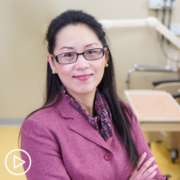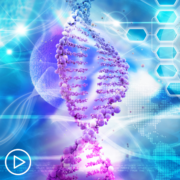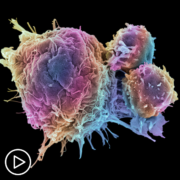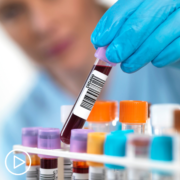A Breast Cancer Expert’s Hope for the Future of Care
A Breast Cancer Expert’s Hope for the Future of Care/a> from Patient Empowerment Network on Vimeo.
Is the future of breast cancer care hopeful? Expert Dr. Bhuvaneswari Ramaswamy shares encouraging research advances and discusses specific areas in need of improvement for all breast cancer patients.
Dr. Bhuvaneswari Ramaswamy is the Section Chief of Breast Medical Oncology and the Director of the Medical Oncology Fellowship Program in Breast Cancer at The Ohio State College of Medicine. Learn more about this expert here.
See More from Thrive Breast Cancer
Related Resources:

|

|

|
Transcript:
Katherine:
Well, to close out our conversation, Dr. Ramaswamy, I’d like to get your thoughts on where we stand with research progress. Are you hopeful?
Dr. Ramaswamy:
Extraordinarily hopeful. I mean, and I say this like I even said before, some of the things I was skeptical about. I have to pull back my skepticism, which I’m very, very happy about. The role of immunotherapy starting to come into breast cancer, newer drugs, oh my God, therapeutics has improved our understanding of how to prevent these cancers. Picking up those high-risk patients, looking at these liquid biopsies, our understanding of genomics and precision oncology, I just have so much hopes. Management of brain mats with radiation treatments that are so targeted, improving, reducing, or mitigating the side effects with the treat – with the less treatments for those patients who have less risk. I mean, in every possible way, we are improving the way – what we are doing. Can we do better? Particularly in some areas I do want to bring it out. I think we still lag behind in health equity.
I think still a in African American patients with the breast cancer has a higher risk of dying from breast cancer. We haven’t really impacted it as well as we can do. I think understanding the ancestry, understanding the risk, understanding the lifestyle behaviors that increases the risk of these aggressive cancers, say in African American women and in and those are very, very important. Prevention is so much better than cure, right? So, I think a little bit better of our understanding on prevention and the liquidity. Both access and understanding the biology and treatment. Improving our clinical trial approvals. We still only even in the best cancer centers, we only approve 25 percent of our patients, 15 to 25 percent of our patients into cancer clinical trials. And look at the changes we’ve had.
But imagine if we can put 50 percent of our patients on clinical trials, we’ll double the progress because without those clinical trials, none of these drugs can be approved.
Katherine:
Yeah.
Dr. Ramaswamy:
So, what is today in a clinical trial is what is a tomorrow-approved drug. So, our understanding and talking about that becomes very very important for us. And then I think lastly, there are some breast cancers like invasive lobular cancers that are only 15 percent that we still don’t understand as well. And so there are some more little pockets that I think we still need to understand. Male breast cancers are slightly starting to increase. We need to improve. So, there are areas we can do better, but overall, it’s absolute promising and very, very happy today. Our research is going really well, so, and it’s impacting patients’ outcomes.
















